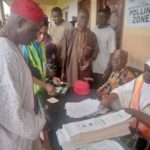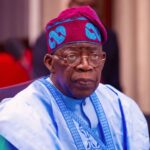Nobody is in dispute that the general atmosphere that existed hitherto the APC gubernatorial primaries and afterward in Katsina State was full of challenges to the ruling APC. The build-up was characterised by the unimaginable challenges of abnormal mutiny from some of the defeated gubernatorial candidates, propaganda of regionalism in the political space, general insecurity, the untimely introduction of the cashless policy, and internal treachery.
Some pundits during election debates had conceded Katsina to the opposition party largely because of the palpable turbulence in the political space, which did not seem to favour the ruling party.
While the APC-led administration of the state-operated an open-door policy and embraced discerning voices, for the sole purpose of moving the state forward, the unexpected public backlash of the party primaries had to be contained in all the spheres and within the shortest time before the general elections.
The aftermath of the gubernatorial primaries resulted in a cross-over to and defection by the runners-up and the third-place candidate to the opposition party, a situation that, unnecessarily wasted precious campaign time but exposed for the first time the most fascistic individuals in the history of Katsina State. It further unveiled the nakedness and unpopularity of the big-mouth cum fat-pocket politicians. Again, the doctrine of morality and the belief that power comes from the Lord was questioned by the disloyal politicians who had earlier believed that the power to the Government House rested with their big mouths and fat pockets.
Centre seeks support for persons living with disabilities
Tinubu would be sworn-in as president – Primate Olabayo
This scenario that had the major beneficiaries of the government patronage, in offices and contracts, being defeated at the party primaries and now defecting to opposition parties, demanded experienced hands, good leadership and a credible candidate to tackle the strongest opposition ever faced by any other ruling party in the state. The defective candidates violated presumptive contracts and confidence that ended up producing moral and psychological conflict between individuals and within the parties.
Thus, it was never easy to fight people that had been part of the government’s political and administrative process for over seven years. The APC-led administration and the gubernatorial candidate had to contend with and overcome these people whose lust for power was combined with an intensity of intolerance and deceit to attain their need and the commonwealth of Katsina people. It was a serious challenge.
To worsen matters and make the tasks of winning the election more tedious, issues of regionalism were propagated across the space. The aim was to discourage voters from electing the APC presidential candidate. This self-serving style of the opposition party was infused in all the Northern states though hollow but dangerous to the ruling party, especially among the rural voters with limited understanding of the new order of nationalism, excellence and futuristic governance.
Their final objective with which all their deceit was directed was to capture political power so that, using the power of the state and the power of the commonwealth simultaneously, they may keep the common man in unending subjection.
Then came suddenly a politically motivated and ill-timed cashless policy of the federal government. The policy had made thousands of electorates reconsider voting for the ruling party because of the hardship of even getting the money for groceries and the crash of small entrepreneurs in the major streets of the urban local governments. The situation was more pronounced in the capital city, which has a high-level enlightened voter population. The opposition party took advantage of the situation and vigorously campaigned against the APC candidates across the realm.
The organised crime of extortion, kidnapping, robbery, and murder committed by outlaws or popularly called bandits was an issue of great concern to Katsina people and was made an issue in the campaigns against the ruling APC in the state. The aim was to dissuade people from voting for the APC and its candidates. The challenge to these factual occurrences and the persuasion of voters to vote for the ruling party, yet, posed another compounding challenge to the leadership.
The overwhelming challenges of abnormal mutiny from defeated gubernatorial candidates, propaganda of regionalism in the political space, general insecurity, the untimely introduction of the cashless policy, and internal treachery were overcome by the APC in the state. The general outcome of conquering the opposition party and squarely exposing their inherent lies, deception and ill-will was championed by the leadership in the state, the governor-elect and his deputy, a focused campaign council, and the many candidates of the party.
Despite the regional propaganda against the APC, the presidential elections became a very tight race between the major parties. President-elect, Bola Ahmed Tinubu scored 482,283 against the regionally-laced 489,045 votes of Atiku Abubakar. The APC further won the three senatorial seats and nine out of the 15 House of Representatives seats. This major contribution to the national leadership is unmatched in the whole of North-western Nigeria.
The successes recorded by the APC leadership in the state were a confirmation that Katsina voters overlooked regional cards played around by the opposition party in the state because of their need to align with the national rhythm and that their leadership has the respect, command, and benevolence so required of a democratic leader.
Indisputably, Katsina State leadership was among the first proponents of the power shift to Southern Nigeria to consolidate the federation. In addition, the APC leadership in the state aligned and voted for Bola Ahmed Tinubu during the presidential primaries to further concretise their support for the southern candidature and a person they so believed would stabilise the country and move it forward. Thus, on issues of patronage, the president-elect would undoubtedly see the case of Katsina State, as a straightforward case as there exists potential common ground of agreement. It is not a proposition of any sentiment, radicalism, influence, or other cleavages in seeking settlement or patronage in the power deal.
Katsina State APC has brought to the basket the fundamental requirements of recognition -the votes, the senators and members of the House of Representatives, and indeed the governorship of the state. The path to success had been distressing, coordinating, herculean, and resourcefully and logistically taxing. The people of Katsina State look forward to a package of patronage to the leadership of Katsina State, beneficial to Katsina people.
Saulawa resides in Katsina

 Join Daily Trust WhatsApp Community For Quick Access To News and Happenings Around You.
Join Daily Trust WhatsApp Community For Quick Access To News and Happenings Around You.


